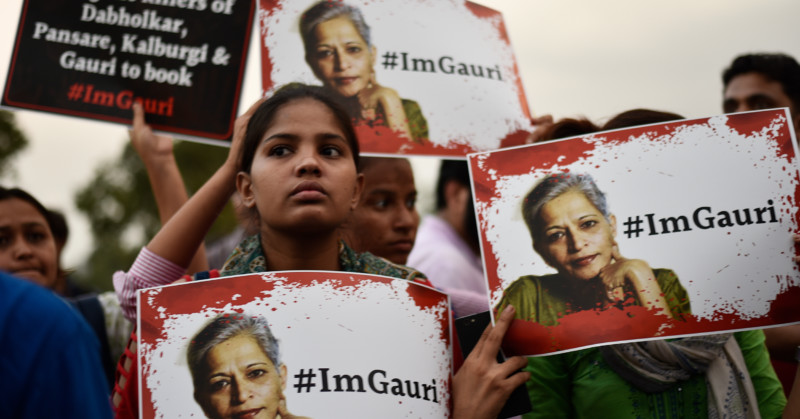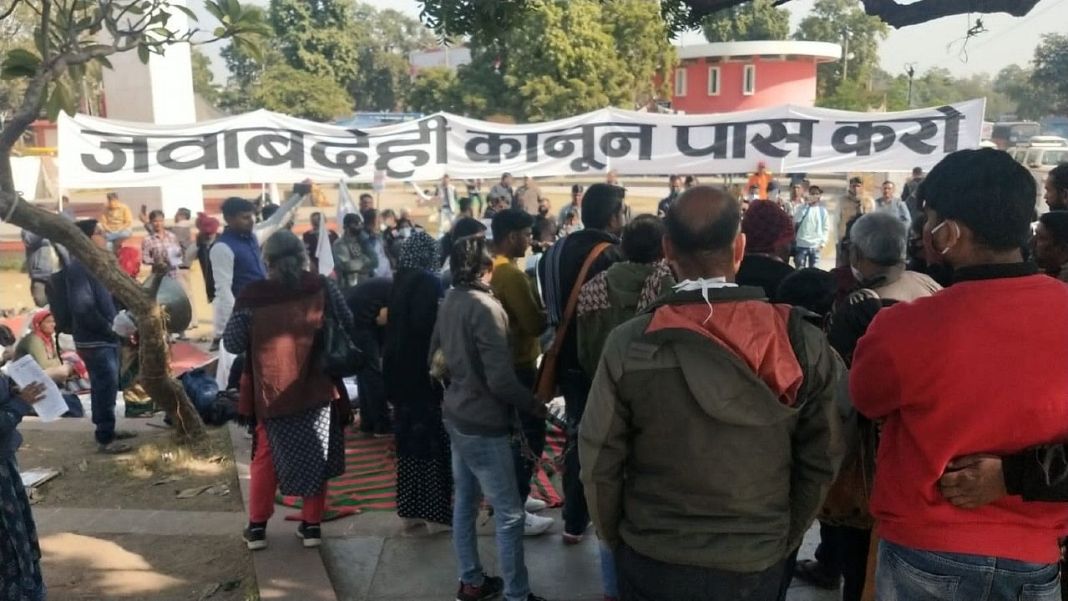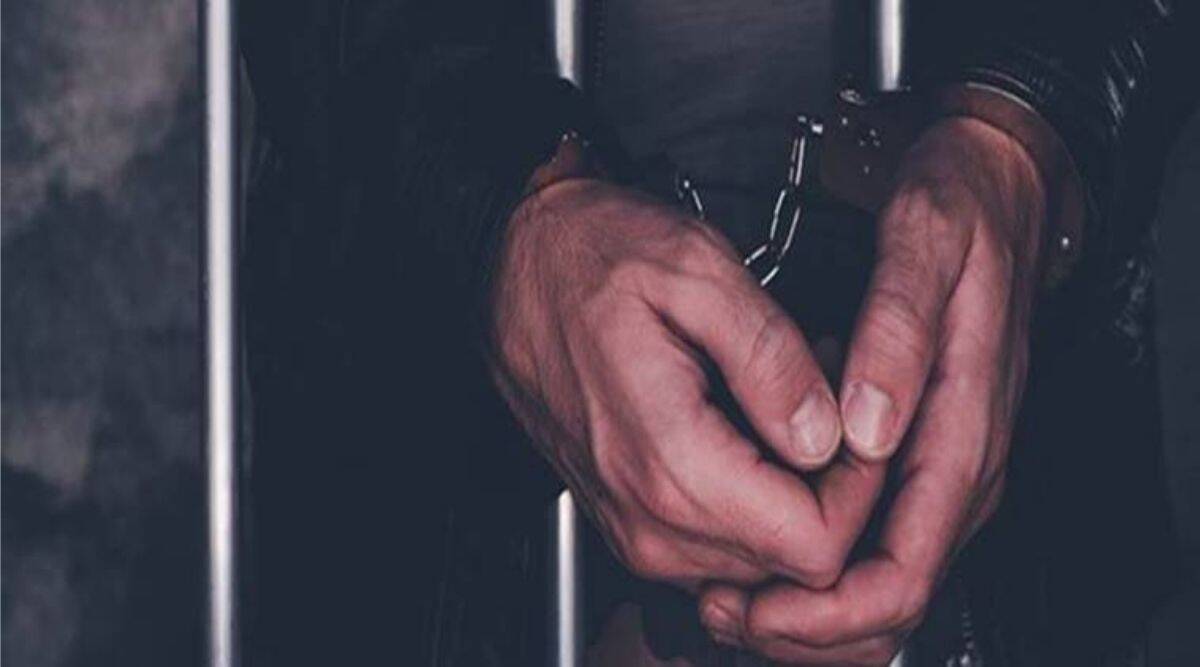
On the 26th of the last month, in Barmer, Rajasthan, Amran Ram Godara, an RTI activist, was abducted and assaulted. "He suffered multiple injuries; his hand was fractured, nails were shot into his legs and he was forced to drink a bottle of urine," said the news report.
Godara is one of the several hundreds of RTI activists who have been attacked for demanding information. The Commonwealth Human Rights Initiative Hall of Shame tracks and lists these attacks. They note 96 such violent incidents that have happened since 2011.

The Right to Information (RTI) Act of 2005 was a landmark law that was passed in 2005 which made previously opaque and inaccessible state records publicly available to citizens upon demanding them. It empowered citizens to demand information from public authorities and government offices, who are mandated to reply with the same in 30 days. As explained by Shekhar Singh, a leader of the RTI movement, "though it has its own victims and levels of…violence, promises a much more benign method of making governments answerable…. The worrying thing is that the government…continues to try and weaken the RTI regime." In ten years since enactment, 17.5 million requests for information were made.
It is not that there aren't safeguards: one section of the RTI Act mandates that if the information seeker is attacked, the details they had asked for must be disclosed publicly. Further, the Whistleblower protection act that had cleared the Indian parliament almost eight years ago still remains unnotified by the government. The state, however, continues to ignore these constitutional guarantees and grant immunity and impunity to the perpetrators of violence. In Barmer, four people have been arrested in connection to the attack, but justice still is very far, and the activist has launched a hunger strike.
Violence on those speaking truth to power is not new. Later this week would have marked the 60th birthday of Gauri Lankesh, the journalist who was assassinated in 2017.
It is in this context that the protests for a Social Accountability Law is important. What is Social Accountability Law? And, What is Jawabdehi Yatra? Read on...
On the 20th of December 2021, a week before the Barmer attack, the Soochna Evum Rozgar Adhikar Abhiyan (A collective of citizen movement to establish greater transparency and accountability in governance) started a Jawabdehi Yatra from Jaipur to demand an "accountability law" in the state of Rajasthan. The march planned for outreach programmes which included cultural performances, street plays and nukkad sabhas to create awareness amongst local communities about the need for an accountability law. The march was paused in the wake of the recent Omicron variant of Covid19 upsurge; it was scheduled to end in Jaipur by the second of February 2022. The march has now taken to social media for its campaign.
What are the demands?
In a democracy, any government should be held accountable to the citizens, and not just to senior officers as it happens right now. This bill is being posed as the second part of the original RTI Bill from 2005.
"The architecture for this law is similar to the RTI. The objective is to strengthen the robust citizen-centric framework so that such a law could, in a true sense of the term, be RTI Part II; taking us from transparency to accountability to the people, within India’s democracy," says Nikhil Dey of the Mazdoor Kisan Shakti Sanghatan (MKSS), one of the organisations at the forefront of the movement.
This article in the BRICSpost from back in 2013 traces how the movement for social accountability started:
What the bill plans to do is to put in place mechanisms to ensure accountability and redressal. Here are some of its main features:
>> Public authorities and officials will have to disclose their responsibilities and obligations through citizen charters and job charts.
>> The public can file grievances when these are violated.
>> Grievance Redress Officers (GROs) at every office, and facilitation centres at every panchayat will allow the registration of these grievances. GROs supervise officials responsible for the execution of the said service.
>> The GRO must take action in a time-bound manner.
>> Complainants have a right to participate in a public hearing (Jan Sunwai) 14 days within the complaint being filed.
>> The complainant can appeal the decision or lack of action of the GRO to appellate authorities.
The full text of the draft bill can be read here:
A flowchart depicting how grievances will be redressed sheds light on the mechanisms behind the law:

To get clarity on how the movement for the social accountability law progressed, here's a timeline shared by the people behind the movement:

In this frontline interview with Aruna Roy, a former IAS officer who later cofounded the MKSS was part of leading the movement for RTI, and also the Jawabdehi Andolan, she talks about how the RTI has fared so far, how rights are assaulted, and how the accountability laws will help.
The rally (Jawabdehi Yatra) moves along speaking to people on the ground, and collecting their complaints and grievances along with campaigning for awareness. Speaking with TheWire, Nikhil Dey of the MKSS said, during the march from 2016:
The state government had slashed 1.4 crore (14 million) households from the BPL (Below Poverty Line) list. It was a bloodbath. Half the complaints we had received during the Yatra were about food rations. Again and again, we were hearing about people wrongfully removed from the ration system. This is the most poor and vulnerable lot.
Digital Empowerment Foundation has been rallying with the people as part of the Andolan since 2016. That year, our team travelled along with the march along with a Digital Van, talking to people and compiling and filing grievances online and in real time and also creating dashboard of all collected grievances of the people.
As Mursaleem, our project officer from Bharatpur, Rajasthan, who participated in the Jawabdehi Yatra recently, wrote in his travelogue,
"... DEF was involved in moving around with our Digitally Equipped Van to register the complaints from people which amounted to more than 600 in just a few days. Some participants were busy collecting donations, some carried around the messages written on tires and distributing fliers, while some others were constantly engaged with the media or prepared postcards that were addressed to the Chief Minister.
Alongside, they maintained sloganeering with great energy and passion and explained the benefits of this law to the attendees during rallies. One team was dedicated to document and another to update social media. We were also supported by different local social groups in every district. Collective efforts made this a powerful campaign."
While the current march is in process, take a look at the report from 2016 published by DEF and UNICEF:

The importance of the movement and demand also comes in the context of amendments made to the 2005 RTI Act. The amendment, which cleared the parliament in 2019 despite protests, have been heavily criticised.
Follow the Andolan here on Twitter to get updates and to show support:

Other News
With elections in UP and four other states rapidly approaching, hate speech on communal lines continue to spread with both the Election Commissions and the big tech companies doing little to intervene.
Critics have long been demanding that Facebook release the Human Rights Impact Assessment report it had conducted in India.
Meanwhile, on another news of spreading and calling for violence on the audio based social media platform clubhouse, Mumbai Police has made three arrests.
Another article from the Economist continuing on our topic from the previous two chapters:
Updates from DEF
On the 19th of January 2022, DEF, along with the Canadian High Commission launched the #WorldWideWomen campaign that seeks to impart Digital entrepreneurship training to rural women.
Read Senior Ashoka Fellow and DEF's founder-director @OsamaManzar's piece on Forbes on how the internet is a right and not merely a technology:
As always, our team is on the ground in eighteen states spreading COVID awareness and dispelling vaccine misinformation.
Until next time, stay safe from the omicron wave!







/cloudfront-us-east-2.images.arcpublishing.com/reuters/ZU4AM6DE2BIDVAWF5RBYOIQWYM.jpg)





















 might be?](https://sk0.blr1.cdn.digitaloceanspaces.com/sites/1394/posts/714526/dbc8de4c-5c50-411f-aba0-55cfb74a692d.jpeg)

Write a comment ...